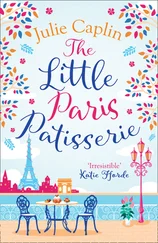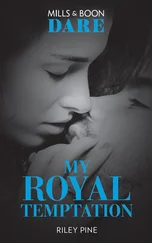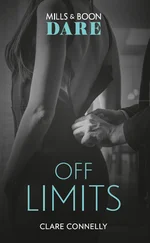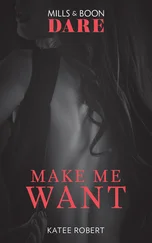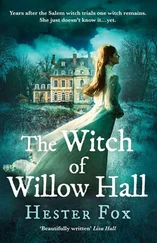His face, as I later learned, had that natural capability for transformation.
Where I had expected sternness, and frowns, and orders crossly delivered, I received something else. A smile, quite gentle. A movement of eyebrows that suggested understanding, and a little wonder. A bit of crinkling around a pair of eyes that had to be called hazel, though they tended, in certain light, toward green; surely that signified admiration?
My face turned warm.
“Miss—?”
“Fortescue.”
“Miss Fortescue. You’re the only evacuation ambulance to get through the roads today, did you know that? Either from the dressing station or the railway depot. How the devil did you do it?”
“I—I just drove, sir. Pushed her out when she got stuck.”
He drove a hand through his hair, which was sparkling with gray and cropped short, so that the bones of his face thrust out with additional clout. I thought he looked as if he came from the countryside, from some sort of vast outdoors; there was something a little rough-hewn about his cheeks and jaw, blunt, like a gamekeeper or else a poacher, although his creased skin was pale and sunless. His fingers, by contrast, contained all the delicate, tensile strength of a surgeon. I thought he must be exotically old, thirty-five at least. “Well, well. I’ll be damned,” he said. “You’re a heroine.”
“Not at all, sir. Just doing my best.”
“As are we all, Miss Fortescue, but you’re the only driver who actually made it through. That’s heroism.”
My cheeks burned. Of course. My chest, too, I think, while everything else went a little cold. At that point in my life—aged only twenty, sheltered for most of those years by a few square miles of tough Manhattan Island and a grim, reclusive father—I’d never received a compliment like that. Certainly not from a grown man, a man of mating age. I didn’t even know that kind of man, other than that he existed, a separate and untamed species, kept in another cage from mine on the opposite end of the zoo. And that was well enough with me. I had no interest in mating. Having survived such a childhood, I thought myself practical and resourceful—and I was, by God!—but not tender. Not susceptible to blandishment, and not susceptible to that particular kind of charm, the kind of charm you’re warned about in all the magazines: hazel eyes and a huntsman’s bones and an angel’s smile.
But now, at this instant, it turned out that I wasn’t immune at all. I was only innocent. Like a child who had never been exposed to measles, I thought I couldn’t catch them. That I was somehow stronger than all those weak, febrile children who had gotten sick.
I didn’t know how to answer him. I mumbled something. I forget what.
His smile, if possible, grew warmer. Incandescent, if I had to choose a word for it, which I did only at a much later hour, when I had the time and the composure to think rationally about him. He said, looking fearlessly into my eyes, “All right, then, Miss Fortescue. Heroine of the hour. If you want patients so badly.”
“Yes, we do,” I said, but he had already turned and barked out something to someone, and down we went along the rows of cots, selecting patients for transport. He gave me six, along with their paperwork, and asked me again for the name of the hospital.
“It’s a château, really,” I said. “Near Marieux. It belongs to the de Créouville family. Mrs. DeForest arranged to lease it—”
“Who the devil’s Mrs. DeForest?”
“Our chapter president.”
“Your chapter president,” he said, mock wearily, shaking his head. He was filling out the transfer papers with a beaten enamel fountain pen, using a medical dictionary as a desk. A small, sharp widow’s peak marked the exact center of his forehead. “What would we do without ladies’ committees?”
“A great deal less, I think.”
He looked up and handed me the papers. “You’re right, of course. God bless them all. I don’t suppose you have an orderly with you?”
“No.”
“Nurse?”
“There’s just me.”
“Just you. Of course.” He turned and called out to the nearest man, who straightened away from a bandage and looked afraid. “Miss Fortescue … is that right?”
“Yes. Fortescue.”
“Miss Fortescue from the American Red Cross has driven an ambulance all the way here from Marieux without an orderly, hell for leather, through mud and shellfire, in order to relieve us of some of our patients. Is Pritchard on duty?”
“No, sir. He’s on rest.”
“Fetch him up on the double and tell him we’ve got to escort six wounded men to the Château de Créouville, in Marieux.” Then, to me: “You’ll bring us back in the morning, won’t you?”
“Of course.”
Back to the orderly. “And find Miss Fortescue a cup of coffee and a sandwich, while you’re passing the mess. She looks like death. Perfectly charming death, but death nonetheless. We shall have no further harm come to her, do you hear me? She is absolutely essential.”
“Yes, sir.”
I tucked the papers under my arm. “If I may say so, sir, you should get some rest. You look like death yourself.”
“It’s Captain Fitzwilliam, Miss Fortescue. As well I should. But I’m afraid I shall have to make do with a ride in an American ambulance instead. You’ll be ready to shove off in twenty minutes?”
“Of course.”
That was all. A final smile, and he turned away and headed off into the maze of rubber curtains that partitioned the far end of the barn, while I stood there, dripping and bewildered, scintillating, waiting for my coffee and sandwich, for Corporal Pritchard. For my six wounded British soldiers.
For Captain Fitzwilliam, in his greatcoat and gum boots, who wanted to inspect us personally.
Cocoa, Florida, June 1922
On second thought, maybe I’m not exactly surprised to see Simon’s brother emerging from an office in the headquarters of Simon’s shipping company. It’s been three years, after all, and even England and Germany are allies now. But certainly I’m shocked, with all the usual physical symptoms of shock, which I do my best to disguise. (You might say I’ve had a lot of practice at that.)
Does he notice? I can’t really say. Like me, he’s the kind of person who disguises his untoward emotions behind a set of frigid, automatic manners. He just holds out his hand and says, “Virginia. It’s good to see you again.”
“Yes.” I recover my balance and release Evelyn’s small fingers to take his palm. The contrast startles me. I had forgotten how large Samuel’s hands are. How large, my God, is the rest of him. “How are you?”
“Well enough.” His gaze falls upon Evelyn, who’s crept behind my right leg and now looks out from the shelter of my skirt.
“I didn’t know you and Simon were partners here.”
“We weren’t.”
“Then, if you’ll pardon my asking—”
He looks back up. “Your husband never actually allowed me a share in the business, Virginia. Despite the close nature of our relationship.”
“To be perfectly honest, I’m surprised he took you on at all. Given the close nature of your relationship.” I put the same ironic emphasis on those words as my brother-in-law did. Why not? We share a certain understanding, after all.
“Well, I guess he’d run out of other men to trust. Anyway, he got his money’s worth out of me.”
“Did he? I haven’t had the chance to examine the books yet. I’m sure I’ll find everything in order, won’t I?”
Mr. Burnside steps up on my other side. “Mr. Fitzwilliam was kind enough to stay on with the company, after his brother’s death.”
Читать дальше

